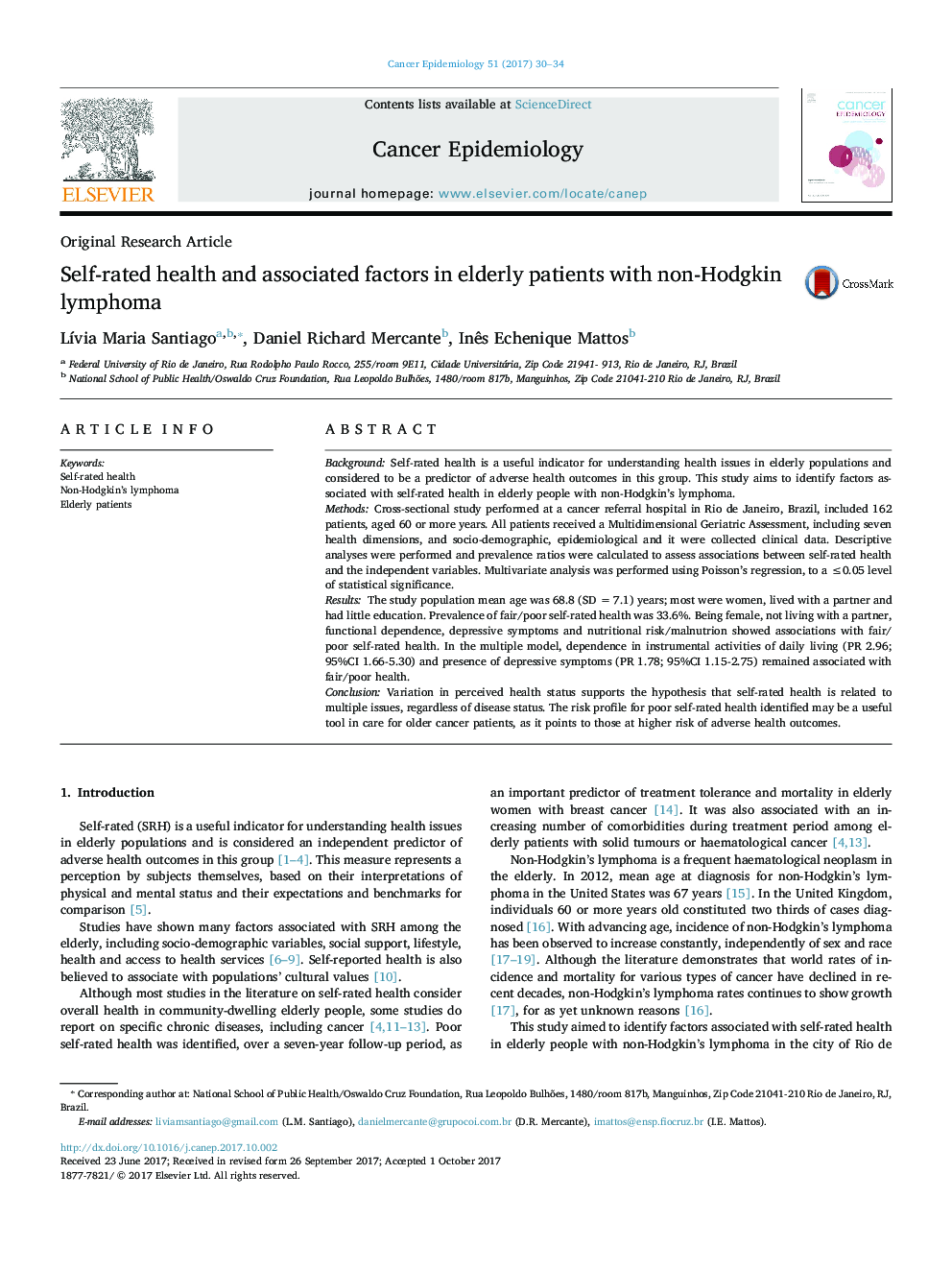| کد مقاله | کد نشریه | سال انتشار | مقاله انگلیسی | نسخه تمام متن |
|---|---|---|---|---|
| 5524736 | 1546523 | 2017 | 5 صفحه PDF | دانلود رایگان |
- Self-rated health is associated with an increasing number of comorbidities among elderly patients with cancer.
- Individuals who rated their health as fair or poor have a greater likelihood of illness and death, independently of their objective health status.
- Functional dependence and depressive symptoms are risk factors for self-rated fair/poor health in elders with non-Hodgkin's lymphoma.
- The risk profile identified in this study is a useful tool for older cancer patients care, as it points to those at higher risk of adverse outcomes.
BackgroundSelf-rated health is a useful indicator for understanding health issues in elderly populations and considered to be a predictor of adverse health outcomes in this group. This study aims to identify factors associated with self-rated health in elderly people with non-Hodgkin's lymphoma.MethodsCross-sectional study performed at a cancer referral hospital in Rio de Janeiro, Brazil, included 162 patients, aged 60 or more years. All patients received a Multidimensional Geriatric Assessment, including seven health dimensions, and socio-demographic, epidemiological and it were collected clinical data. Descriptive analyses were performed and prevalence ratios were calculated to assess associations between self-rated health and the independent variables. Multivariate analysis was performed using Poisson's regression, to a â¤0.05 level of statistical significance.ResultsThe study population mean age was 68.8 (SD = 7.1) years; most were women, lived with a partner and had little education. Prevalence of fair/poor self-rated health was 33.6%. Being female, not living with a partner, functional dependence, depressive symptoms and nutritional risk/malnutrion showed associations with fair/poor self-rated health. In the multiple model, dependence in instrumental activities of daily living (PR 2.96; 95%CI 1.66-5.30) and presence of depressive symptoms (PR 1.78; 95%CI 1.15-2.75) remained associated with fair/poor health.ConclusionVariation in perceived health status supports the hypothesis that self-rated health is related to multiple issues, regardless of disease status. The risk profile for poor self-rated health identified may be a useful tool in care for older cancer patients, as it points to those at higher risk of adverse health outcomes.
Journal: Cancer Epidemiology - Volume 51, December 2017, Pages 30-34
